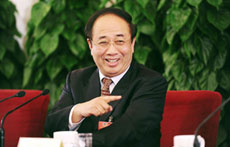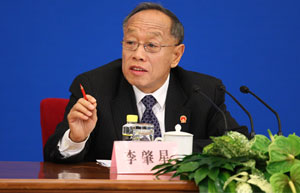Experts urge reform of science grants
By Li Jing (China Daily)
Updated: 2011-03-10 08:09
BEIJING - Chinese scientists are spending so much time applying for research grants that the country's attempts to achieve scientific breakthroughs and innovation have been seriously impeded, Wang Tingda, the former audit supervisor for the Chinese Academy of Sciences, has warned.
| ||||
"Some of them are consuming at least half of their time filling in application forms for research projects," Wang told China Daily on the sidelines of the annual session of the CPPCC National Committee, citing a survey he conducted among more than 370 scientists from 11 research institutes around the country.
Wang said about 44 percent of the surveyed spend only half of their working hours on scientific research, and another 16 percent spend only a third. For the rest of their work time, they had to do things such as project applications and reviews .
"Some said they have to work on weekends to make up for the lost time," Wang said. "This is actually a severe waste of research resources."
In China, funding for scientific research is distributed through two channels: some basic research projects receive grants every year, but most scientists have to compete for project-based funds.
"Such a mechanism needs to be improved to encourage scientists to devote their time to research," said Wang.
"I propose that the government provide long-term finance for those scientists who have a proven record of good research, so that they can concentrate on their studies."
About 73 percent of the scientists surveyed said they wanted changes to the system for allocating research funds.
Using funds effectively is becoming especially important as China places more emphasis on technological innovations and is heavily increasing its investment in science and research, Wang said.
Premier Wen Jiabao said China will increase its spending on scientific research and development to 2.2 percent of GDP by 2015. The ratio was 1.8 percent in 2010, short of the 2 percent set in the 11th Five-Year Plan (2006-2010).
Li Deshui, the former director of the National Bureau of Statistics, who is also a member of the CPPCC National Committee, said the country's funding for scientific programs still lags behind the world's average level.
"We need to reform the funding mechanism and the reviewing systems for scientists," Li said. "We need to generate more tangible results from our research programs."







